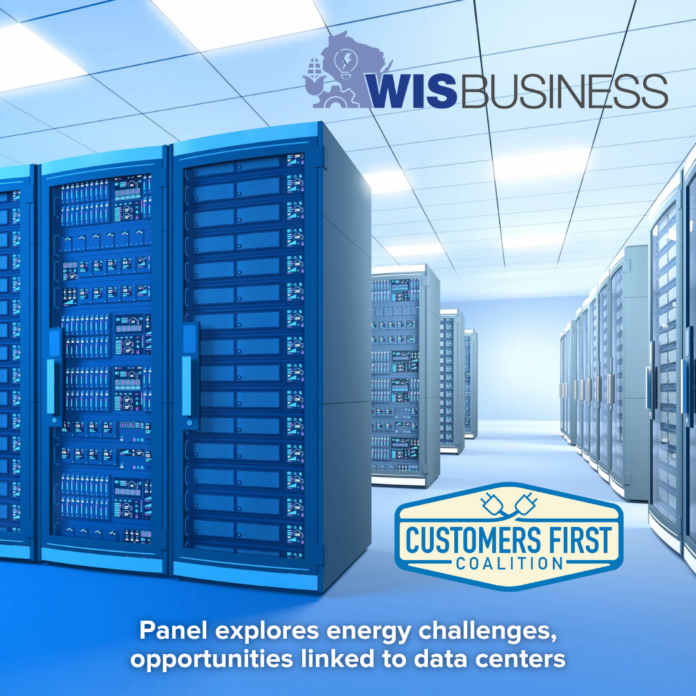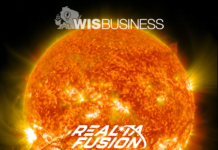The energy grid challenge posed by more data centers coming online presents an opportunity to accelerate new technologies in this space, according to former state PSC Commissioner Tyler Huebner.
Huebner, who now works for Google’s energy market development team, was a featured speaker at this week’s Customers First Coalition 2025 Power Breakfast in Madison.
The discussion focused on the rising demand impact of new data centers being built across the country, including in Wisconsin. Huebner said projects like these bring “a lot of job creation, a lot of economic benefit, tax base benefit” for the communities where they’re located. But those benefits are paired with a substantial need for energy, with one “hyperscale” datacenter being comparable to adding an entire city to the grid in some cases.
Kari Valley, senior director of state policy and strategy at the Midcontinent Independent System Operator, noted MISO’s coverage area has seen little load growth over the past two decades. Over the next 20 years, the energy load is expected to rise by about 2.6% per year, resulting in a more than 60% increase over that period, she said during the event.
“So a whole different picture than we’ve looked at before … looking at novel, creative, complex solutions to these problems,” she said. “These are not easy to solve. They vary by area, type of addition. So we’re looking at all of those factors in terms of what framework is needed to support that, and answering to the needs of the footprint.”
Huebner pointed to geothermal energy and small modular reactors, or SMRs, as exciting prospects for this space. These smaller nuclear reactors are being developed as an alternative to the much more expensive tradtional nuclear plants, as they can be deployed to in-demand locations after being built in a factory elsewhere.
“How do we continue to kind of pull and accelerate some of these ideas that people have been talking about for a long time, and how do we scale them,” he said, noting Google is investing in improving energy efficiency and weatherization to maximize the potential of the existing transmission grid. “The grid is a constraint now. Getting power is a constraint. How flexible can we be?”
Meanwhile, WEC Energy Group Executive Vice President of External Affairs Robert Garvin touted the state’s attractiveness to data center developers, saying “this is fantastic” that utilities in Wisconsin are seeing this level of interest in companies developing “hyperscale” projects.
Garvin said data center developers — such as Microsoft and Cloverleaf in Port Washington, both within the service area for the utility’s subsidiaries in the state — are prioritizing speed to market, reliability and cost for new projects.
“We have very suitable sites, like I’d mentioned, good infrastructure and a predictable regulatory environment, which are all attributes which I think have helped us,” Garvin said.
Watch the video.






